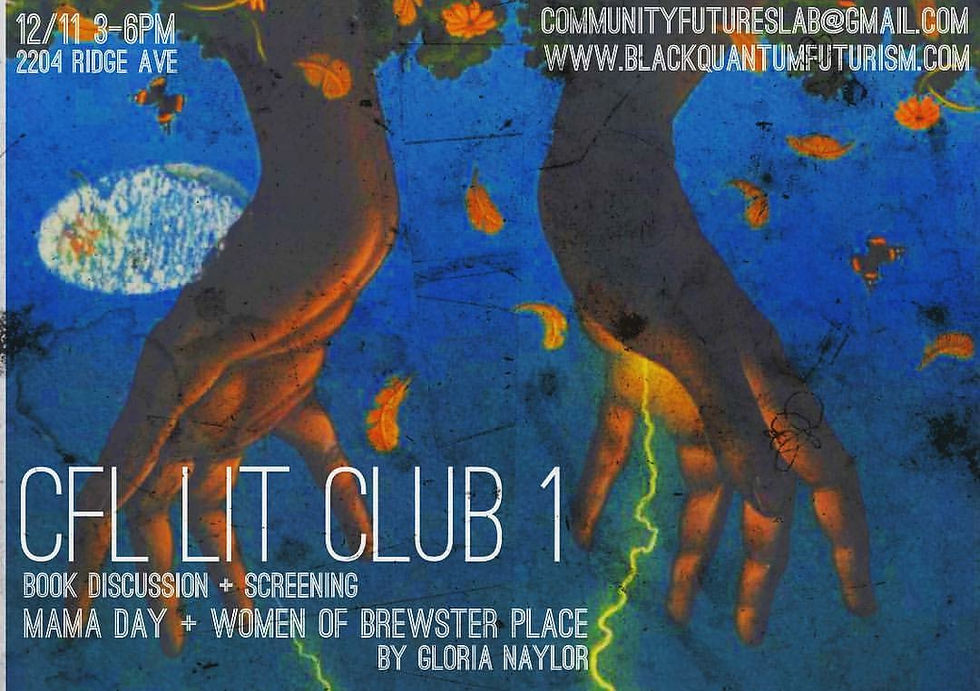CFL Lit Club #1 - Post-Lit Notes (Mama Day)
- Ayana Dunn
- Mar 6, 2017
- 3 min read

[On December 11, 2016 , Community Futures Lab held the first meeting of CFL Lit Club, a book + film discussion and screening series. For club meeting #1, we read Mama Day and screened the miniseries adaptation of the novel, The Women of Brewster Place, both by Gloria Naylor (who recently passed on Sept 28 - Rest in Power). At the meeting we discussed the themes of community, time, temporality, memory, motherhood, Black womanhood in the books and films, and drew maps of our own housing journeys. Ayana attended the first meeting and shared additional thoughts with us afterward. CFL Lit Club #3 will be on April 1!]
I thought more about Sapphira and Bascomb Wade, as well as the theme of not entirely reliable narrators. I've come to the conclusion that their relationship was yet another example of a white slave owner's "love" or sheer desire for an enslaved woman being the crux of their union. Sapphira didn't love him - she was with him because she didn't have a choice. The viewpoints of Willow Spring's residents on many topics are valid in their own ways, yet as you know, highly romanticized. The ugly bits are conveniently omitted. Their origin story sounds much more appealing than that of a woman's forced concubinage.
Here are my reasons:
There are multiple passages about Wade's love for Sapphira, but there is not a single reference of her love for him.
There is a phrase mentioned at least twice in the book. The wording is strikingly similar. The first is along the lines of "Wade's love for her was in body but not in mind", and the second said something like "he had her body but not her mind".
The fact that she left him. If she loved him, why would she try to leave?
The fact that he never freed her. He freed all his slaves except her. Why not free her if he's sure she'll genuinely want to stay with him? He robbed her of the little autonomy she could have had, thus basically forcing her to stay with him.
This is related to #4 - she couldn't physically get away. She was on a secluded island with him. How far can an enslaved woman go in that circumstance before encountering slave catchers?
The family tree in the beginning of the book. Looking at it during the book club was what first sparked this thought process. The originator is an enslaved woman with no mention of the presumably white father, just like so many others. Despite Mama Day's rosy description of them, their family tree is virtually identical to so many others. If Wade loved Sapphira so much, why not ensure he is included?
Even if an enslaved woman has genuine affections for her master, overseer or any other white who has taken a liking to her, their relationship is inherently poisoned by the power dynamics of that time. Irregardless of how she feels, she has no choice.
Those are my main reasons. I don't doubt his deep affection for her. Maybe it really was some sort of twisted love, but it sounds like it did Sapphira little good aside from immediate security. It reminds me of Alice and Rufus from "Kindred". Even Dana could see that Rufus loved Alice, but it was still far from a union between two but it was still far from a union between two consenting adults. consenting adults.






